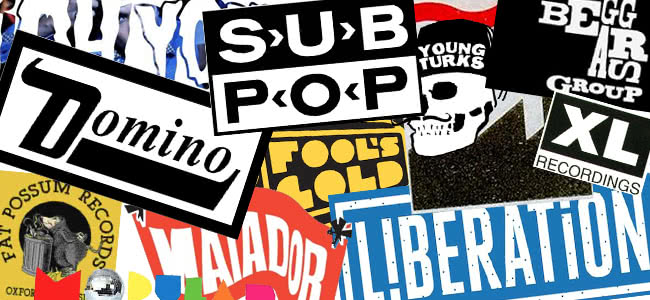
The independent record label is a curious beast. They can be both fun and troublesome in equal turns, both for fan and proprietor alike.
By fun, I mean that you can procure some of the most amazing music ever made that, in a lot of cases, has slipped under the radar. By troublesome, I mean you may have great trouble sourcing some of the most amazing music ever made that has slipped under the radar.
Most record labels that we now call "major" labels started out as simple businesses that grew to a monumental size. Some labels start up and are swallowed up by huge multinational companies. Others stay independent but secure deals with majors to press and distribute their product. But the one thing that often distinguishes the independent label from the major label is the fact that the people pressing the records believe in the talent they are supporting. It's not that major labels don't do that, but often the major label is focused more on sales and less about the music, while the ethos of the indie label is usually the other way around.
Indie label releases are usually fewer in number than that of a major label, and often pressed in smaller quantities. Distribution can be somewhat limited as well, meaning that upon original release a record may not have even made it to your local record store. Legendary U.S. indie label SST, home to Black Flag, Husker Du, Minutemen and the early Sonic Youth albums, had major distribution problems. So while critics in major magazines and trade publications were raving about albums like Husker Du's "Zen Arcade", it barely sold any copies because they had major problems getting the records into shops around America. Ditto legendary Memphis band Big Star - their first two records are mandatory listening for any music fan, but they sold poorly due to distribution problems.
In Australia, it was no different. We have had many brilliant labels that sprung up in the major cities; many of whom were also shop-fronts, stocking the records for retail sale and also stocking records by their local peers/competitors.
The roll call of awesome labels in the 1980s include:
Phantom Red Eye Citadel Waterfront Half a Cow M-Squared Aberrant Hot Missing Link Au-go-go Mushroom/White Label Rubber Cleopatra Able +1 Savage |
 |
among many others. The great thing about these labels is that they often supplied the world with amazingly great music that the major labels thought was uncommercial or that no-one in their right mind would touch. That's why The Saints released their first single independently, and why Radio Birdman formed their own label.
And the Indie label phenomenon hasn't stopped there. There's still plenty of great ones out there: Matador, Elephant Stone, Dischord, Inertia, and hundreds of others. The trick to buying music from an indie label is to try a sampler disc first, which is designed to introduce the listener to the bands and releases on the label. Failing that, take a plunge, buy a single and take a listen. Chances are if you like that one release, you'll love other releases on the same label.
I happened to chance upon a 10-inch EP on a Scandinavian label called Bad Afro about 10 years ago. The band was The Royal Beat Conspiracy. It took a few listens to get into it, but when I did, I loved it. I investigated the label catalog a bit deeper and discovered a heap of great bands on the label, many of whom released some killer 7-inch singles: bands like The Burnouts, The Maggots, Sweatmaster, The Rockets, The Dialtones. It's not that they necessarily sound identical to Royal Beat Conspiracy, but they are like-minded, inasmuch as they play hard-driving guitar-based garage rock.
It often pays to dig a little deeper and to find something unusual. You may find the next big thing, as tiny indie label SubPop found when they signed bands like Soundgarden, Band of Horses, and some bunch calling themselves Nirvana...
Have you ever uncovered a gem of a record on an indie label? What was it and what label was it on? Let us know in the comments below.
Enjoy!

No comments:
Post a Comment